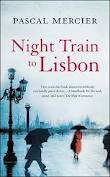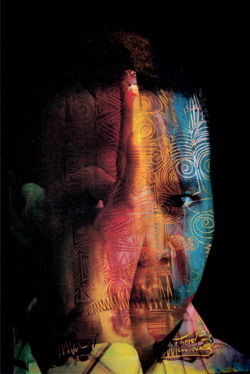I will argue for a new literary order.
Suppose we call this ‘neo-literariness’, for want of a better word, and because in hyphenation a word acquires two identities. So, neo-literariness is the word to use for a generation of writers and enthusiasts who function despite institutional lapses, and whose artistic engagement thrives of new ways of being, especially web-technology.
I will explain with a few examples.
In 2009, Dami Ajayi and myself began publishing
Saraba Magazine, which to date has published 11 issues of PDF magazines, 5 poetry chapbooks and 2 sub-issues. We have, so far, received no grant, or made no profit, but we have published up to 120 writers from 5 continents. How do we manage to do this? When I am working on any new issue of Saraba, I wonder how these far-flung writers get to hear about our work. And this is more surprising because we have clearly defined our Nigerian and African sensibility. The answer is not far-fetched; something about how literature is exchanged is changing.
I think that the change that is happening is happening for two reasons – ease of accessibility and ambitiousness. The first is easy to explain. I pay about one thousand five hundred naira for weekly internet subscription. My subscription is 20 hours with a validity period of one week. I live in Lagos, which means I get 3G easily. If I lived in Umuahia, where I recently visited, I will barely struggle with EDGE. So although I know that there are exceptions, and not everyone is as privileged as I am, I understand that there increasing numbers of Nigerians on the web explains ease of accessibility, that at least, people find ways to do what they have to do online. And wasn’t it
Gbenga Sesan who retweeted that Nigeria had the fourth largest internet users on earth?
But ambitiousness as an indicator of neo-literariness is a different matter. It means that our literature is changing because writers and literary enthusiasts are finding their voice on the internet, as literal as that sounds. It means that writing aside the internet, in this generation, is a failed endeavour. Even my most secluded of friends, Ayobami, has a
blog. There has to be, I repeat, something happening for you online. There’s a plethora of Facebook groups, blogs, websites, that attest to a multifarious ambitiousness.
Because the first place a writer gets published, at least in my generation, at least most writers, is on a website. There are indications that more and more lit-websites will be hosted in the coming years, as we lack the structure in Africa for print journals.
Saraba, although named as one of top African lit-mags, is yet to publish a print edition, if we ever will. I dare to mention the importance of this although we have equally seen how dangerous this could be – with the ease of accessibility people tend to pose as ‘critics’ without knowing the meaning of the word, or the art, the speculative erudition required. For the danger of our neo-literariness is the spontaneousness with which we can write – a tweet, a post, a comment, even before we have thought out our stance.
The other thing to point out is that the web is changing our interaction with our literariness. As I am taking examples from personal efforts and commitments, consider the work we are doing in
3bute. We are currently adapting the stories shortlisted for the
Caine Prize this year. As is noted on our website, 3bute is an online anthology devoted to the contexts often missing when African stories are reported. Our mash-up platform lets artists collaborate with writers on 3-page visualizations of their stories and journalism. 3bute’s mashable surface lets everyone add their voice to the story by submitting relevant links to any context/ media content they can find on the web. 3bute pages can also be embedded all over the web, and the context everyone has added to the page goes along with it. In other words, 3bute is a social, accessible and sustainable way of distributing African stories, along with much needed context, around the web.
Imagine a redefinition of the way words intersect with imagery. The pre- neo-literariness era would not have allowed us to do this. More than ever, our generation of artists are finding ways to re-imagine how several art forms can be anthologized. I think of how words can merge with photographs and videos in one surface – how to read is to see, and thus to feel. Because our primary duty as writers, I believe, is to create a world that evokes feeling. We might achieve this through a novel, a story, a blogpost. But who says we cannot achieve this through a mash-up that allows other art-forms to interact with what is being written? There is the argument, although I do not totally buy it, that asserts that in the wake of social media came short attention spans. That this results in the necessity to keep the text shorter, to understand that more people are off the text, so to speak. The only sense this argument makes to me is the need to provide an audience with alternative ways of seeing, alternative ways of presenting a narrative.
 |
| Emmanuel Iduma |
The third, and final point which I need to make about neo-literariness is emergence of artist-administrators. Although I take a cue from other art forms – inspired by the examples of Segun Adefila, Victor Ehikhamenor, Emeka Okereke, etc – I am particularly drawn to the work of writers who are engaged in creating literary structures. Nowhere is this more aptly demonstrated on the continent as in the grandeur of Kwani? which was founded by Binyavanga Wainaina. Perhaps the only writer on the continent whose Prize-winning-prestige/influence was redirected at others; and not on a seasonal basis, on a workshop-basis, but on an all-time basis.
Yet, the pattern is changing. There are emerging writers are not waiting for prize-prestige before creating a platform that projects the ambitions of others. Those like my friend Richard Ali (
Sentinel Nigeria;
Parresia), or Dzekashu McViban (
Bakwa Magazine), Myne Whitman (
Naija Stories), Tolu Oloruntoba (
Klorofyl), Ayodele Olofintuade (
Laipo), Morgan Oluwafemi (
Artmosphere) and Temitayo Olofinlua (
Bookaholic Blog). I should equally mention enthusiasts – Azafi Omoluabi-Ogosi (Parresia), Dotun Eyinade (
Pulpfaction BookClub).
As such the lesson we are learning is that our neo-literariness is predicated on systems that confer ambitiousness upon the ambitions of our fellows – systems that are not necessarily founded because we are established, but because we are fixed on parameters of longing. If I have failed to mention any new literary system here, it is not because it does not exist, but because contrary to what I would ordinarily believe, hope is the new heroin – and more and more artists are attempting the needful.
More and more artists are attempting the needful.
Emmanuel Iduma obtained a degree in Law from Obafemi Awolowo University, Ile-Ife. His interests range widely, including web technology, digital art, visual art, and creative writing. He is the co-founder of Iroko Publishing, which has published Saraba as an electronic magazine since February 2009. He is currently the editor of 3bute.com, an online mashable anthology of African modernity. He participated in the Invisible Borders Trans-African Photography Initiative, a road trip from Lagos to Ethiopia. His novel, Farad, is published by Parresia Books. He is working on a second novel.

.jpg)









